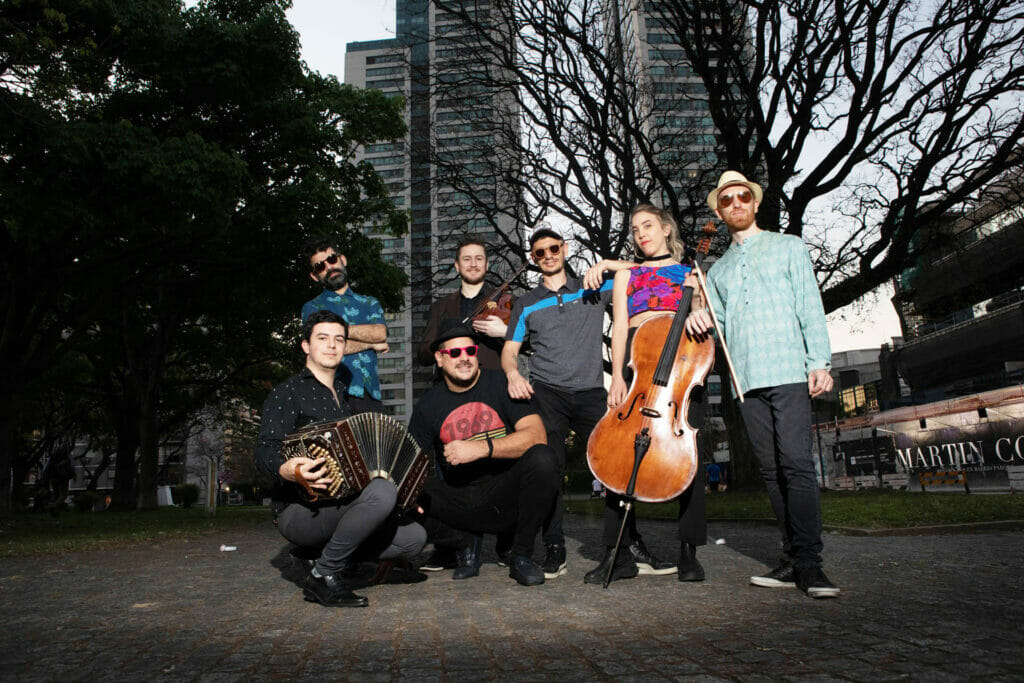In the far south of Latin America, the sound of tango music has been drifting from bars in the ports of Buenos Aires and Montevideo since the late 1800s. “Tango is very traditional, and so why not bring to this beautiful tradition a hefty dose of inclusion, of queer love?” says Max Masri, founder of Tanghetto, the now 20-year-old group that fuses modern electronic music and tango and has been nominated for four Latin Grammys.
Masri’s most recent project, “Argentinxs,” melds tango with well-known music from other genres, from rock to jazz. One of those is by renowned Argentine musician Fito Páez, whose single “Carabelas Nada” was just launched and is also featured on Páez’s own discography. Tanghetto’s album will be available May 5th on digital platforms. Masri lives in Buenos Aires with his partner Damian, but travels often to the U.S where he’s pursuing new projects, including movie scoring. He spoke with GLAAD recently by phone while preparing the project’s release.
Calling the project “Argentinxs” represents a nod to inclusion (Latinx or words with x endings offer a non-gendered alternative to masculine “o” endings in purals, like “Latinos,” which leaves lots of women and non-binary people feeling invisible). When asked if he thinks he’ll get pushback from Spanish speakers who don’t like these linguistic changes—Masri laughs. “Of course I will. But that’s what I’ve always done. Inclusion is the soul of what I do,” Masri told GLAAD.
Their song “Mente Frágil” was about two women finding one another and Masri recalls being told the video was too explicit to play on television in Argentina. “The video is just two women dancing. You can see they are falling in love, but that’s all it was. But they said it was too explicit. Then, a few years later, the marriage debate starts and people start seeing more and learning, and it changed.” Masri says that hearing people, including celebrities, speak out in support of equality helped shed light on how nonsensical anti-LGBTQ arguments were. “Having the debate helped people understand. In 2010, Argentina legalized same-sex marriage. Media and culture also helped shape thinking. “I remember when every image in a film was heteronormative. If there was an LGBTQ character, they met a bad ending. That’s not the case anymore, thankfully.”
Masri’s happy to see society opening up and becoming more accepting, not just about orientation but also about gender identity. A good friend came out, not long ago, as trans after her father died, and she felt she could begin her transition. “I’m sad it took so long, that it couldn’t be sooner, but the main thing is that she’s so happy now,” Masri says. Tanghetto released a song and video, “Transtango”
Inclusion, stirring up trouble, queering the genre—whatever you call it, Masri and his band of music creators will keep doing it. “When we played at Lincoln Center, we invited a gay couple to dance too. So, there we are, you know, and it’s New York, and the city where the revolution started for us. And we’re playing tango at the Lincoln Center! And it’s two men dancing the tango…. Well, come on, it doesn’t get better than that!”













